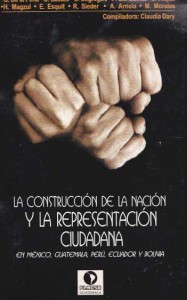In The Oxford Handbook of Law and Anthropology, edited by Marie-Claire Foblets, Mark Goodale, María Sapignoli, and Olaf Zenker
 This chapter reviews the principal debates on the juridification of politics, discussing anthropological analysis of the juridification of Indigenous politics. While much of the broader debate refers principally to the diffusion and vernacularization of state and international law, and the subjectivities generated by engagements with dominant norms and institutions, here I turn the lens on the complex dialectics involved in Indigenous Peoples’ juridification of their own forms of law or what in Spanish is referred to as derecho propio. Drawing on my ethnographic work in Guatemala, I trace the different ways in which Mayan rights activists and their allies have analyzed, systematized, and defended their own forms of law in the context of battles for state recognition of legal pluralism in the post-war period. I point to the potentialities inherent in the juridification of Mayan law, arguing that different legal engagements can be read as exchanges that also contain and transmit a politics of what Audra Simpson (2015) has termed ‘indigenous refusal’.
This chapter reviews the principal debates on the juridification of politics, discussing anthropological analysis of the juridification of Indigenous politics. While much of the broader debate refers principally to the diffusion and vernacularization of state and international law, and the subjectivities generated by engagements with dominant norms and institutions, here I turn the lens on the complex dialectics involved in Indigenous Peoples’ juridification of their own forms of law or what in Spanish is referred to as derecho propio. Drawing on my ethnographic work in Guatemala, I trace the different ways in which Mayan rights activists and their allies have analyzed, systematized, and defended their own forms of law in the context of battles for state recognition of legal pluralism in the post-war period. I point to the potentialities inherent in the juridification of Mayan law, arguing that different legal engagements can be read as exchanges that also contain and transmit a politics of what Audra Simpson (2015) has termed ‘indigenous refusal’.





 Across Latin America, indigenous women are organizing to challenge racial, gender, and class discrimination through the courts. Collectively, by engaging with various forms of law, they are forging new definitions of what justice and security mean within their own contexts and struggles. They have challenged racism and the exclusion of indigenous people in national reforms, but also have challenged ‘bad customs’ and gender ideologies that exclude women within their own communities. Featuring chapters on Bolivia, Colombia, Ecuador, Guatemala, and Mexico, the contributors to Demanding Justice and Security include both leading researchers and community activists. From Kichwa women in Ecuador lobbying for the inclusion of specific clauses in the national constitution that guarantee their rights to equality and protection within indigenous community law, to Me’phaa women from Guerrero, Mexico, battling to secure justice within the Inter-American Court of Human Rights for violations committed in the context of militarizing their home state, this book is a must-have for anyone who wants to understand the struggle of indigenous women in Latin America. (Rutgers University Press, 2017)
Across Latin America, indigenous women are organizing to challenge racial, gender, and class discrimination through the courts. Collectively, by engaging with various forms of law, they are forging new definitions of what justice and security mean within their own contexts and struggles. They have challenged racism and the exclusion of indigenous people in national reforms, but also have challenged ‘bad customs’ and gender ideologies that exclude women within their own communities. Featuring chapters on Bolivia, Colombia, Ecuador, Guatemala, and Mexico, the contributors to Demanding Justice and Security include both leading researchers and community activists. From Kichwa women in Ecuador lobbying for the inclusion of specific clauses in the national constitution that guarantee their rights to equality and protection within indigenous community law, to Me’phaa women from Guerrero, Mexico, battling to secure justice within the Inter-American Court of Human Rights for violations committed in the context of militarizing their home state, this book is a must-have for anyone who wants to understand the struggle of indigenous women in Latin America. (Rutgers University Press, 2017)


 The effect of plural legal systems on gender justice is an emerging area of research and policy concern. It is generally agreed that legal pluralities play an important role in determining women’s livelihood options in many developing countries, yet there is surprising little consolidated research examining the relationship between these and the prospects for greater gender justice. This volume presents the results of a three year research project coordinated by the Chr. Michelsen Institute, Bergen, and CIESAS Mexico, which considers the impact of legal pluralities on gender justice and women’s rights. Individual chapters explore the relationship between legal pluralities and gender justice and injustice through a range of country cases from Africa and Latin America, including Sudan, Tanzania, South Africa, Zimbabwe, Mexico, Guatemala and Bolivia. By examining the different ways in which legal norms, instruments and discourses are being used to challenge or reinforce gendered forms of exclusion, the volume aims to generate new knowledge about the dynamics at play between contemporary contexts of legal pluralities and the struggles for gender justice.
The effect of plural legal systems on gender justice is an emerging area of research and policy concern. It is generally agreed that legal pluralities play an important role in determining women’s livelihood options in many developing countries, yet there is surprising little consolidated research examining the relationship between these and the prospects for greater gender justice. This volume presents the results of a three year research project coordinated by the Chr. Michelsen Institute, Bergen, and CIESAS Mexico, which considers the impact of legal pluralities on gender justice and women’s rights. Individual chapters explore the relationship between legal pluralities and gender justice and injustice through a range of country cases from Africa and Latin America, including Sudan, Tanzania, South Africa, Zimbabwe, Mexico, Guatemala and Bolivia. By examining the different ways in which legal norms, instruments and discourses are being used to challenge or reinforce gendered forms of exclusion, the volume aims to generate new knowledge about the dynamics at play between contemporary contexts of legal pluralities and the struggles for gender justice.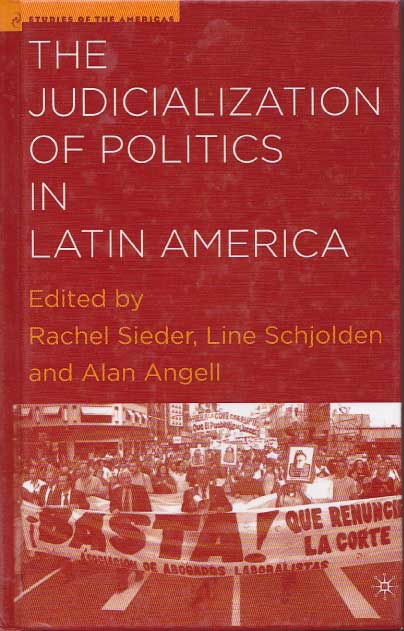
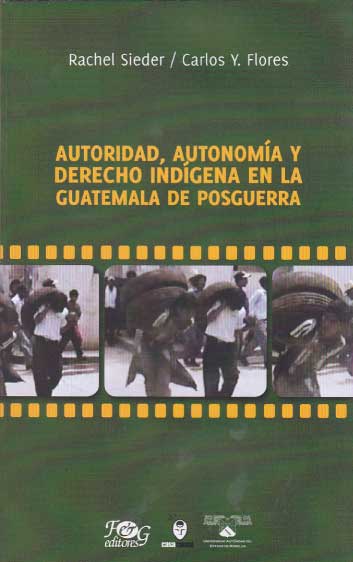


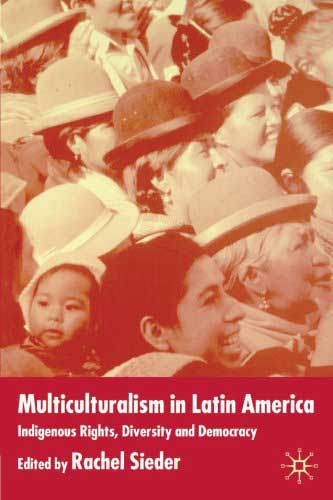
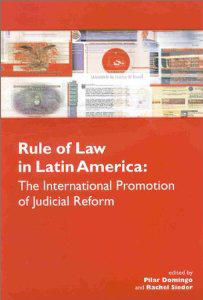
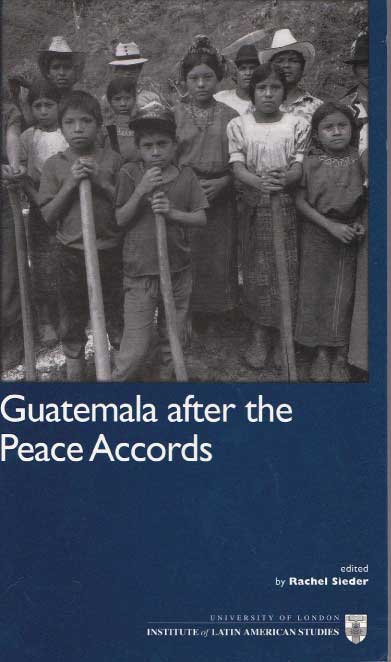


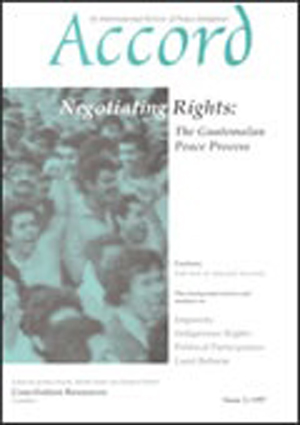



 The shift towards legally plural multicultural and pluri-national citizenship regimes in the Andes formally recognised indigenous peoples’ community-based governance systems. These tend to emphasise participation, deliberation and service to the collective, but are often criticised for discriminating against women. We argue that recent constitutional reforms and legislation combining recognition of collective rights claims with institutional guarantees for gender equality have in fact amplified indigenous women’s different strategies of ‘negotiating with patriarchy’, allowing them to further the transformation of their organisations and ‘custom’. Such strategies are necessary because of the intersections of race, class and gendered exclusions that indigenous women experience, and possible because of the diverse and dynamic nature of community governance systems. Despite systemic and structural constraints on the guarantee of indigenous peoples’ rights, the actions of organised indigenous women over the last two decades point to new ways of imagining more plural, less patriarchal forms of citizenship.
The shift towards legally plural multicultural and pluri-national citizenship regimes in the Andes formally recognised indigenous peoples’ community-based governance systems. These tend to emphasise participation, deliberation and service to the collective, but are often criticised for discriminating against women. We argue that recent constitutional reforms and legislation combining recognition of collective rights claims with institutional guarantees for gender equality have in fact amplified indigenous women’s different strategies of ‘negotiating with patriarchy’, allowing them to further the transformation of their organisations and ‘custom’. Such strategies are necessary because of the intersections of race, class and gendered exclusions that indigenous women experience, and possible because of the diverse and dynamic nature of community governance systems. Despite systemic and structural constraints on the guarantee of indigenous peoples’ rights, the actions of organised indigenous women over the last two decades point to new ways of imagining more plural, less patriarchal forms of citizenship.


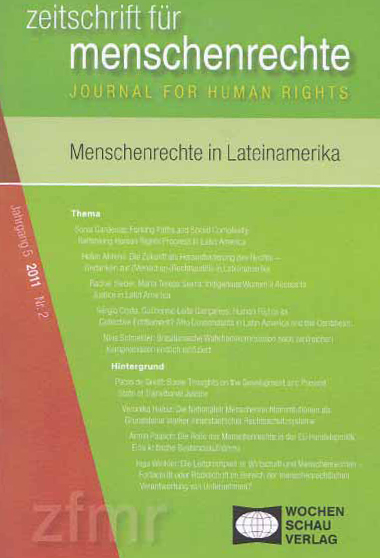
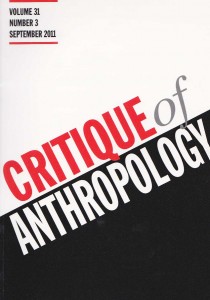
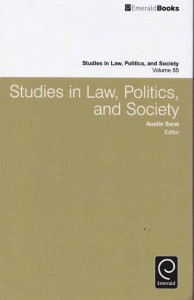

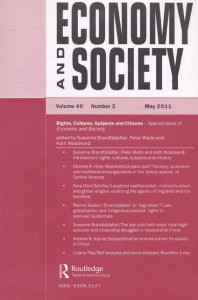
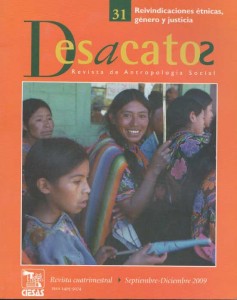
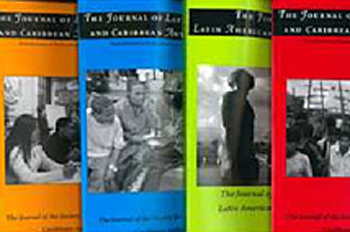
 In this essay, we describe some of the collective reflections and analyses that emerged as a result of a comparative project initiated with a UC MEXUS-CONACYT Collaborative Grant, awarded funds to two research teams, one in the United States and one in Mexico. The aim of the project was to develop a common theoretical framework for understanding the complex relationship between movements for indigenous rights, state reform, and juridical structures. A principal goal of this framework was to allow for a comparison of the experience of indigenous groups in regions of Mexico, Guatemala, and the United States, including transnational indigenous migrants between these countries. We focused on the ways in which indigenous people are struggling for political and cultural rights, local autonomy, and effective justice practices in the context of changes being wrought by processes of economic, political, legal, and cultural globalization. We were particularly interested in analyzing how men and women might be living these struggles differently and how gender norms and dynamics might be shifting as a result of organizational experiences or migratory processes.
In this essay, we describe some of the collective reflections and analyses that emerged as a result of a comparative project initiated with a UC MEXUS-CONACYT Collaborative Grant, awarded funds to two research teams, one in the United States and one in Mexico. The aim of the project was to develop a common theoretical framework for understanding the complex relationship between movements for indigenous rights, state reform, and juridical structures. A principal goal of this framework was to allow for a comparison of the experience of indigenous groups in regions of Mexico, Guatemala, and the United States, including transnational indigenous migrants between these countries. We focused on the ways in which indigenous people are struggling for political and cultural rights, local autonomy, and effective justice practices in the context of changes being wrought by processes of economic, political, legal, and cultural globalization. We were particularly interested in analyzing how men and women might be living these struggles differently and how gender norms and dynamics might be shifting as a result of organizational experiences or migratory processes.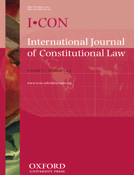
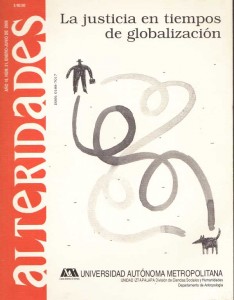







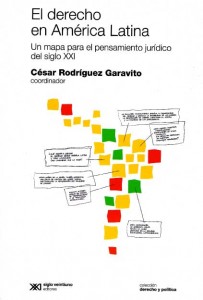
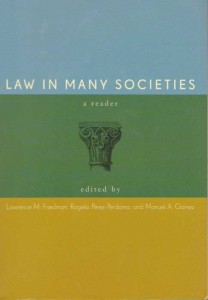
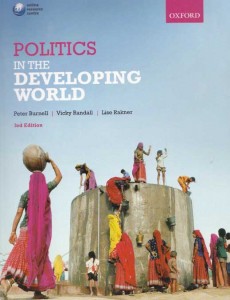 A contribution to a textbook on politics and development, this chapter examines Guatemala as a persistent case of underdevelopment, defining development in terms of social, economic, cultural, and political rights. It analyses historical patterns of state formation and economic development before examining the attempts to reverse historical trends and “engineer development” represented by the 1996 peace agreement. The final section signals the main contemporary causes of the country’s persistent underdevelopment: a patrimonialist and predatory state linked in turn to the strength and conservatism of the private sector, the weakness of the party system, the continuing influence of the armed forces, and extremely high levels of crime and impunity.
A contribution to a textbook on politics and development, this chapter examines Guatemala as a persistent case of underdevelopment, defining development in terms of social, economic, cultural, and political rights. It analyses historical patterns of state formation and economic development before examining the attempts to reverse historical trends and “engineer development” represented by the 1996 peace agreement. The final section signals the main contemporary causes of the country’s persistent underdevelopment: a patrimonialist and predatory state linked in turn to the strength and conservatism of the private sector, the weakness of the party system, the continuing influence of the armed forces, and extremely high levels of crime and impunity.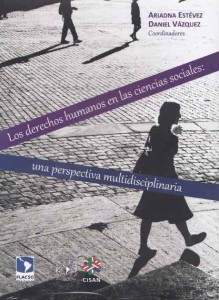
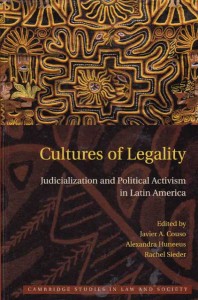
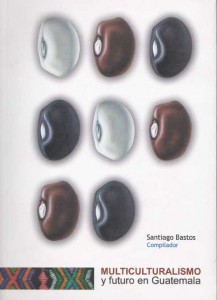
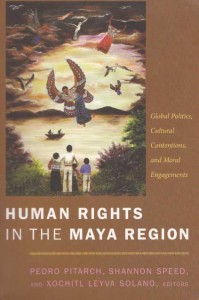
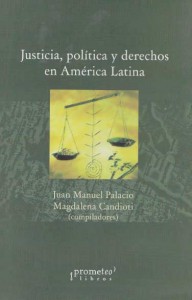

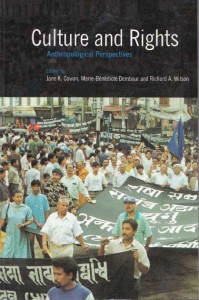 In this chapter we argue that recourse to legalistic strategies and discourses to strategically further the aims of indigenous movements shapes the ways their aspirations are represented. Indigenous identities in Guatemala are effectively being narrated or codified through dominant legal discourses, specifically international human rights law and multiculturalism. This has resulted in the projection of an essentialized, idealized and atemporal indigenous identity, the movement’s leaders often perceiving such essentializing as tactically necessary in order to secure collective rights for indigenous people. Such claims of authenticity have become intrinsic to demands for indigenous legal structures and practices to be given greater political space as part of the wider process of state reform. However, such conceptions ultimately fail to reflect the complexity and power dynamics of social relations in the wake of the armed conflict.
In this chapter we argue that recourse to legalistic strategies and discourses to strategically further the aims of indigenous movements shapes the ways their aspirations are represented. Indigenous identities in Guatemala are effectively being narrated or codified through dominant legal discourses, specifically international human rights law and multiculturalism. This has resulted in the projection of an essentialized, idealized and atemporal indigenous identity, the movement’s leaders often perceiving such essentializing as tactically necessary in order to secure collective rights for indigenous people. Such claims of authenticity have become intrinsic to demands for indigenous legal structures and practices to be given greater political space as part of the wider process of state reform. However, such conceptions ultimately fail to reflect the complexity and power dynamics of social relations in the wake of the armed conflict.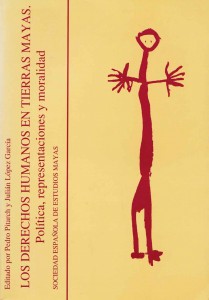
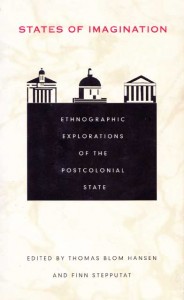
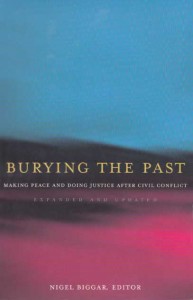 Focusing on the case of Guatemala, this chapter examines a number of variables central to explaining the nature and impact of memory politics: first, the social legacies of widespread human rights violations, including who the victims and perpetrators were, and the kind of impact human rights violations had on society as a whole; second, the circumstances of the transition itself, specifically the prevailing balance of political forces and the different trade-offs between truth and justice that this engendered; third, the role of local human rights organizations and civil society in general, in particular whether and how they supported and/or contested official attempts to deal with the legacy of past violations of human rights; and fourth, the role played by international governmental and nongovernmental organizations in efforts to uncover the truth about the past and address the consequences of human rights violations. In the light of this analysis, the final section of the chapter considers the impact of memory politics on the wider process of democratization in Guatemala.
Focusing on the case of Guatemala, this chapter examines a number of variables central to explaining the nature and impact of memory politics: first, the social legacies of widespread human rights violations, including who the victims and perpetrators were, and the kind of impact human rights violations had on society as a whole; second, the circumstances of the transition itself, specifically the prevailing balance of political forces and the different trade-offs between truth and justice that this engendered; third, the role of local human rights organizations and civil society in general, in particular whether and how they supported and/or contested official attempts to deal with the legacy of past violations of human rights; and fourth, the role played by international governmental and nongovernmental organizations in efforts to uncover the truth about the past and address the consequences of human rights violations. In the light of this analysis, the final section of the chapter considers the impact of memory politics on the wider process of democratization in Guatemala.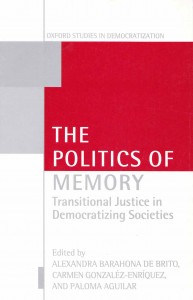 This chapter compares and contrasts experiences of “memory politics” in El Salvador, Honduras and Guatemala, the three Central American countries which during the 1990s undertook official processes of investigating past abuses of human rights, and examines the examines the role exercises in memory have played in the struggle for democratization. In marked contrast to the Southern Cone of Latin America, the transition to procedural democracy in these three Central American countries roughly coincided with the worst period of human rights abuse, the consolidation of military power over the state and civil society, and the demobilization of opposition movements. It is therefore argued here that effective democratic consolidation hinges less on the constitution of formal procedural channels for participation and representation, and more crucially on the effective and far-reaching demilitarization of state and society. This involves securing both formal changes to state institutions and the creation of a democratic political culture of citizenship. Exercises in memory have constituted a critical variable in these distended and complex processes.
This chapter compares and contrasts experiences of “memory politics” in El Salvador, Honduras and Guatemala, the three Central American countries which during the 1990s undertook official processes of investigating past abuses of human rights, and examines the examines the role exercises in memory have played in the struggle for democratization. In marked contrast to the Southern Cone of Latin America, the transition to procedural democracy in these three Central American countries roughly coincided with the worst period of human rights abuse, the consolidation of military power over the state and civil society, and the demobilization of opposition movements. It is therefore argued here that effective democratic consolidation hinges less on the constitution of formal procedural channels for participation and representation, and more crucially on the effective and far-reaching demilitarization of state and society. This involves securing both formal changes to state institutions and the creation of a democratic political culture of citizenship. Exercises in memory have constituted a critical variable in these distended and complex processes.